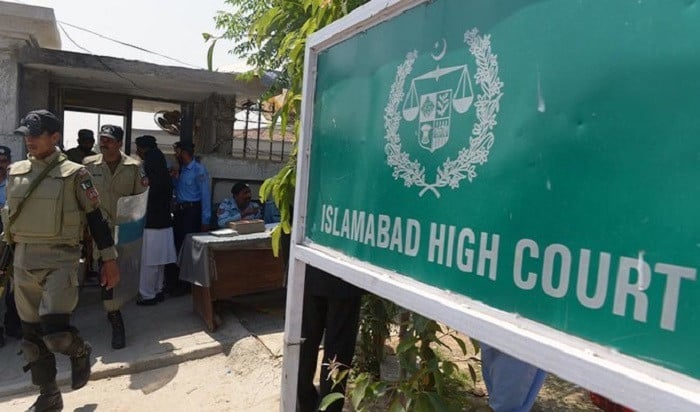In a verdict that was suspended earlier, the Islamabad High Court (IHC) reinstated the 10-year disqualification period for people convicted under the National Accountability Ordinance (NAO). This came after an earlier ruling that had reduced the duration to five years.

Two justices, Mohsin Akhtar Kayani and Saman Rafat Imtiaz, made up the division bench that heard the accountability watchdog’s appeal.
Senior Special Prosecutor NAB Muhammad Rafay, who was present during the court, argued that the disqualification period begins upon a prisoner’s release from custody.
Justice Kayani wanted to know if all members of parliament were disqualified under Article 63 or if members of the provincial assemblies were also disqualified.
Members of the provincial assembly were exempt from disqualification under Article 63, according to the NAB prosecutor’s response. in addition to the ten-year ban handed down to PML-N ticketholder Mir Faiq Ali Jamali.
The prosecutor, Rafay, clarified that the Supreme Court had affirmed Faiq Jamali’s sentence.
According to Justice Kayani, he had neglected to answer the question posed to him. He went on to ask if the Constitution’s interpretation differed from the subsidiary legislation.
That the Constitution “spoke generally” was what the NAB officer told him in Article 63 (1) H. The National Accountability Ordinance (NAO), he informed the bench, was an exceptional statute with a 10-year disqualification penalty.
Additionally, he mentioned that the disqualification judgement had been upheld by the Supreme Court in the Khalid Longo case.
The divisional bench listened to the arguments and then halted the 2019 ruling of the IHC’s single bench that had lowered the disqualification period to five years.
Jamali was forbidden from running for office until 2026 by the Supreme Court in July 2019.










































